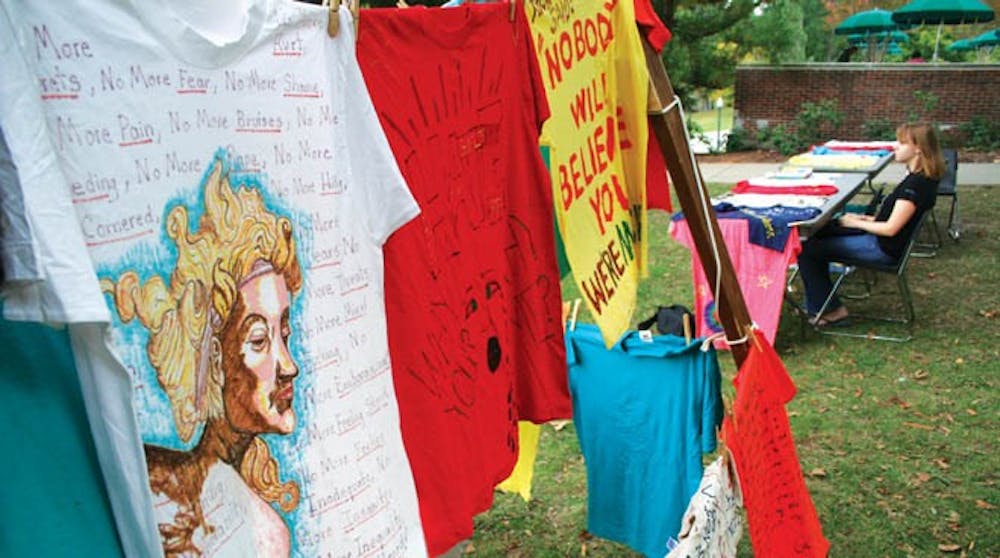T-shirts bearing messages such as "Stop the violence" and "We will fight back" hung from a clothesline on the lawn outside the Boatwright Memorial Library on Tuesday afternoon as part of the Clothesline Project, a movement to raise awareness about violence against women.
The project, which is supported once a year by Women Involved in Living and Learning, gives students affected by violence an opportunity to express their emotions on a shirt. That shirt is then put on display in an effort to combat violence against women.
"The idea is that [affected students] are hanging up their dirty laundry," said Spach Trahan, a sophomore WILL member.
Students were able to design their own shirts in the North Court Blue Room and hang them outside the library.
According to the Clothesline Project's Web site, the T-shirts are color-coded to have different meanings. White shirts represent people who have died because of violence; yellow and beige shirts represent battered women; red, pink and orange shirts are for survivors of rape and sexual assault; blue and green shirts are for victims of incest or sexual abuse; purple shirts are for people attacked because of their sexual orientation; and black shirts are for people attacked for political reasons.
"I don't think people always go along with [the color code] but that's the idea," Trahan said. And although the project was originally designed for women, students could also make shirts for men who were victims of violence, she said.
WILL, which has 32 new members this year, did not do too much advertising for the event, said Emily Miller, WILL's president.
"When we set it up outside in front of the library, we know that it is such a high traffic area that it sort of advertises itself," she said. "Many people stop to ask what it is, and then they end up taking a closer look. The shirts are so powerful; it is impossible to read them or interact with them and not feel moved."
Members of the campus and greater Richmond communities made the shirts on display, Miller said.
"Some of them are older than others, but we continue to display them because their courageous voices are still so powerful and relevant," she said. "The message is that this kind of violence happens everywhere, even here on our very own campus."
Violence and sexual abuse/assault go unreported too often, Trahan said.
"This is a way to say, 'It's not your fault,'" she said.
Enjoy what you're reading?
Signup for our newsletter
Contact staff writer Guv Callahan at guv.callahan@richmond.edu
Support independent student media
You can make a tax-deductible donation by clicking the button below, which takes you to our secure PayPal account. The page is set up to receive contributions in whatever amount you designate. We look forward to using the money we raise to further our mission of providing honest and accurate information to students, faculty, staff, alumni and others in the general public.
Donate Now



